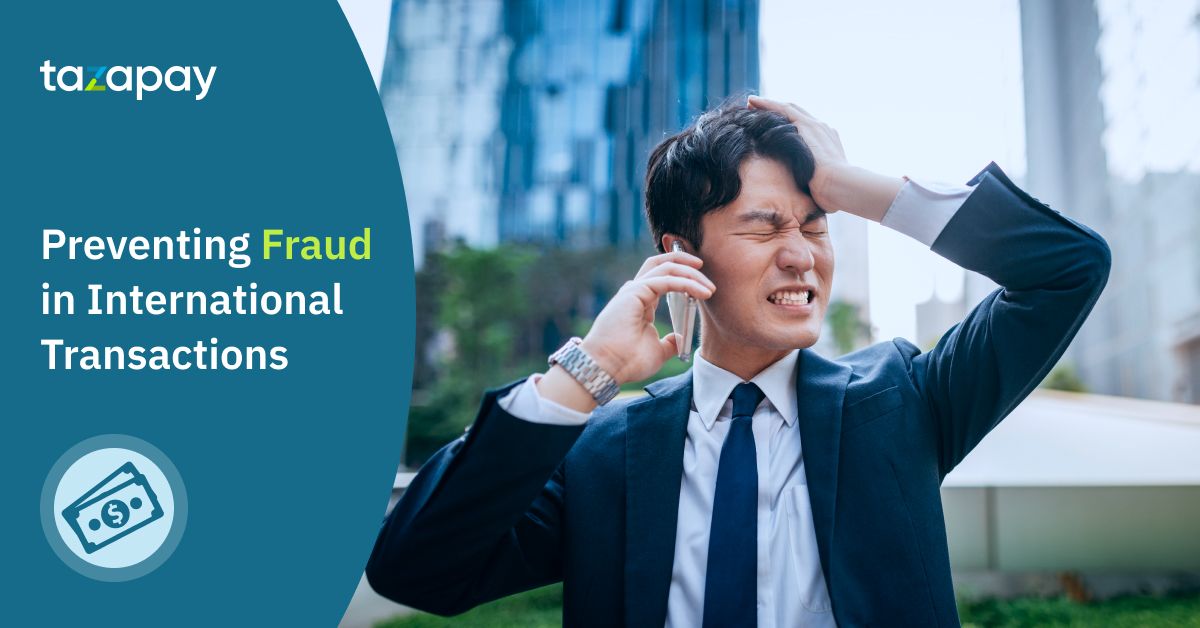Preventing Fraud in International Transactions: Tips And Tricks

When businesses are involved in international transactions, there is some level of trust between the parties involved. However, when this trust is taken advantage of to deceive & trick either of the parties, it is fraud. Therefore, it is very important to ensure the safety of payments and eliminate any risk associated with fraud when conducting an international transaction.
Fraud could occur despite having a long-lasting relationship with a vendor since you are less likely to suspect them of malpractices. Alternatively, fraud could involve an internal resource such as a ‘loyal’ employee who goes behind your back and siphons money off you.

What is Vendor fraud?
Vendor fraud involves an attack on your company by the fraudster. Vendor fraud involves an attack on your company by the fraudster. The fraudster is usually the vendor or an employee involved with a vendor or group of vendors, deploying the company’s accounts and payment systems for personal gain. There are different ways in which this vendor fraud can take place.
Inflated bills – You end up receiving bills higher than the actual services and goods provided. Moreover, in-house employees can also provide higher bills to take a cut or even directly via the vendor.
Bid winning – There is a pact between your employees and external vendors on how to make them win the bid unscrupulously
Fixing a price – This happens between a group of vendors who maintain similar pricing for their offerings
Bribery – Bribery happens when vendors give something of value to employees in return for helping them out in their fraud. For example, employees take personal favours and make monetary demands in exchange for helping vendors to win bids, disclose sensitive information and facilitate monetary gains through inflating bills.
To effectively prevent fraud from taking place, knowing these types of fraud is crucial, to be alert and on your guard at all times. To ensure that you are not taken for a ride and future fraud attempts remain in vain and not full-blown compromising your organization and finances, these few tips will come in handy.
A few vendor fraud prevention tips to avoid being scammed
Thorough vendor vetting and enrolment process
Your organization must have a fool-proof due diligence process before enrolling new and legitimate vendors. When you start to set up accounts, ensure that all the information provided adds up – any mismatch should raise a red flag. Check ownership information via legitimate sources such as state databases; compare the vendor's contact details against your employees' address and contact details. Make sure the tax ID and business numbers are genuine – also, if you have someone assigned for this task, perform random checks by other people to look out for any discrepancies.
Leveraging data to detect irregularities
Do an in-depth analysis of data to recognize trends and detect variances. This can help the company detect fraud in time and prevent any control breakdowns. You may notice certain patterns like multiple bills just below the approval level, changing addresses, and out of sequence invoice numbers. All these are indicators that either the employees or vendors are up to something.
Separation of payment duties
It is good to have different departments to approve budgets and invoices and those who actually execute the payments.
Anonymous email ID or number
Sometimes an employee could know that something fishy is happening but maybe afraid to disclose their identity. Anonymity could help the disclosure of relevant information and prevent fraud.
Employee education
Once your employees are made aware of stringent policies and how secure the payment systems are, they will think twice before defrauding the company. It would be best if you were cautious and act to prevent your company from becoming vulnerable to vendor fraud.
Apart from taking these steps in-house, you should also get a secure payment service provider such as Omoney Escrow which helps protect your payments regardless of whether you are the buyer or the seller. The digital escrow provider holds funds and only disburses them when the contractual obligations are fulfilled. Now one may think, when you choose an escrow provider, How is escrow fee calculated? Omoney is very transparent about its escrow fee – 1.8% of the transaction value for non-card payments. Moreover, there are no hidden processing fees and charges, so if you want a smooth payment provider without any fraud.
Category






